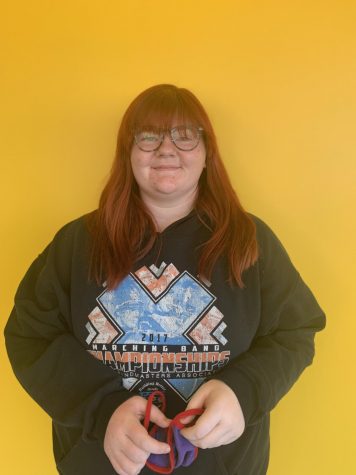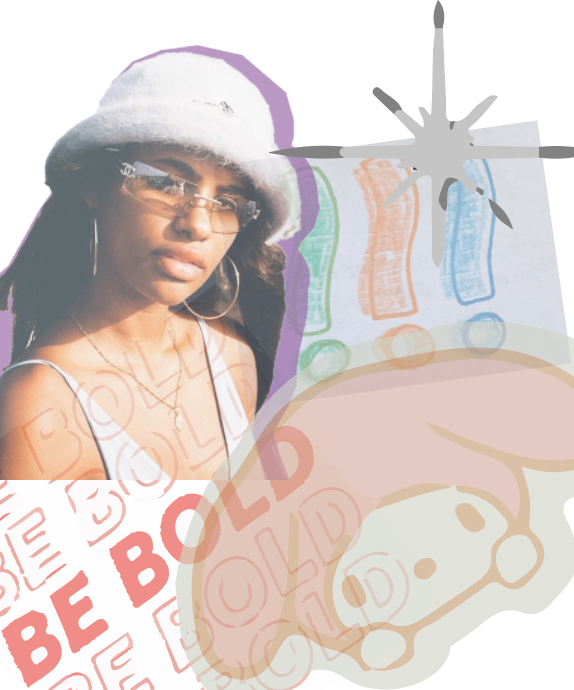Pretty Privilege
When speaking of topics like privilege, it’s mutually agreed upon that a privilege is an advantage given to someone for no other reason than that’s what they were born with.
The privilege I’m referring to in this story is an advantage you’d inherit genetically, more specifically, the privilege of being attractive.
Attractiveness is unearned. It’s something you were born with.
Now, let me preface this by saying that I understand that things that are considered attractive now may not be attractive in the future and may not have been attractive in the past.
So for the sake of clarity, I’m going to be only referring to American beauty norms in the 21st century. There is a specific beauty standard ingrained in all of our minds, and the basic things that help define this beauty standard boil down to a couple of categories — youthfulness, facial features, body shape and weight.
To a point, all of these things are something someone is born with.
Children look like their parents, so many of these traits will be inherited to a certain degree. Even if someone doesn’t inherit all of these traits perfectly, the amount that they do become heir to gives them just that much of a headstart in life.
A person who’s across the board averagely attractive can spend time on their beauty, perfecting how they look in the eyes of others and will generally succeed in life whereas a person with low attractiveness can spend just the same amount of time and will most likely fail to achieve the same things.
Yes, diligence does help a small amount in this case, but some people are just lucky enough to be born pretty.
How does being attractive give you an advantage? According to a Sage Journals study, attractive people are perceived as smarter and more trustworthy, receive higher ratings for social skills and dominance, paid more attention, often understood more, and even obtain better wages and jobs. In the workplace, if someone is considered to hold above average attractiveness, they’re in luck, because they’re more likely to have a 10% to 15% higher wage than someone of below average attractiveness.
Even in the criminal world, if you’re enticing, you’re actually more likely to get away with a crime. This is supported by what’s called the halo effect-an unconscious tendency to assign beautiful people with positive attributes, such as kindness, generosity, or honesty. This phenomenon has unfortunately been highlighted on the popular video app TikTok, where thousands of people have proclaimed their affection towards the notorious serial killer Ted Bundy, who used his good looks to lure victims. The effect of physical attractiveness to judges is so incredibly bad, that unattractive criminals were fined 304.88% more than attractive criminals, according to a result of three studies.
These fields are prevalent in today’s society, and I think a good way to represent these issues is modern entertainment. In most classic Disney movies, the characters who were evil were characters who didn’t fit the beauty standard.
Characters who were portrayed as lazy, mean or stupid were characters who didn’t fit the beauty standard.
In several modern sitcoms, directors would use (and still do) the plus size character to be the comedic relief. An outstanding example of this would be the advertisement for the film “Red Shoes and The 7 Dwarfs.” On several billboards displayed all throughout South Korea was an image of two girls, one tall and skinny and the other was short and bigger. Next to the shorter girl was the words “What if Snow White was no longer beautiful and the 7 dwarfs not so short?”
This ad alone is insinuating that just because a girl was short and plus-sized, she was immediately deemed as ugly. This disgusting behavior puts mountain of insecurities onto young, impressionable girls.
Time and time again, individuals who are considered attractive get along much easier than they think they do. Only recently has society begun to scratch the surface of fixing this issue, yet there’s so much further to go.
Plus size models are finally being introduced and making it to front covers and transgender/non-binary models are also being recognized for their beauty, but at the same time, receive a lot of negative backlash for simply existing in their own skin. Lizzo, a well known singer and songwriter, is a body-positive individual who’s openly proud of herself, has a well-known song named Boys, where she’s stating that she loves all men, no matter how they look. Unsurprisingly, she still receives backlash daily, and is being made of constantly for the size she is.
Although new and inclusive models are milestones to be celebrated, this is the bare minimum, and we as a collective need to do better. We need to realize this unconscious bias we hold towards those who are enticingly attractive, and start treating each other as equals.

Anika Kreegar, otherwise known as Ani, is a senior staff member in the Blue Valley Tiger Newspaper. She specializes in art and thoroughly enjoys making...




